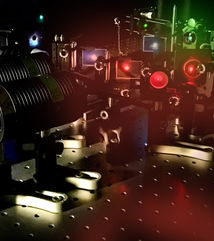MIRaCLe
Translational Imaging Biomarkers of CNS Disease
Biomarkers are increasingly important in the diagnosis of disease and the application of precision medicine.
Positron Emission Tomography (PET) is the most sensitive imaging technique that can be applied in humans. PET can provide fully quantitative Imaging Biomarkers for CNS disease for a range of molecular targets.

Development of a Molecular Imaging Biomarker
The development of a PET imaging biomarker is analogous to the development of a drug, and runs through the following steps:
-
Target identification
-
Lead compound development
-
In vitro and on vivo assessment in preclinical models
-
Brain penetrance
-
Selectivity
-
Specificity
-
Metabolism
-
Quantitation
-
-
First-in-human studies
We offer support for all phases of CNS imaging biomarker development.

Development and validation: a targeted ‘Molecule to Bedside’ chain
MIRaCLe integrates academic and clinical leads in radiopharmacy and nuclear medicine, with supporting preclinical and clinical infrastructure. As such, we apply multidisciplinary expertise with state-of-the-art infrastructure to offer translational studies for drug development, clinical trials and fundamental research studies, particularly for CNS targets.













